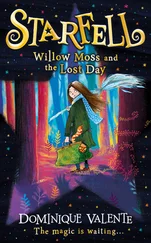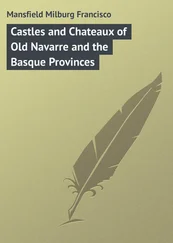Ursula Le Guin - Old Music and the Slave Women
Здесь есть возможность читать онлайн «Ursula Le Guin - Old Music and the Slave Women» весь текст электронной книги совершенно бесплатно (целиком полную версию без сокращений). В некоторых случаях можно слушать аудио, скачать через торрент в формате fb2 и присутствует краткое содержание. Жанр: Фантастика и фэнтези, на английском языке. Описание произведения, (предисловие) а так же отзывы посетителей доступны на портале библиотеки ЛибКат.
- Название:Old Music and the Slave Women
- Автор:
- Жанр:
- Год:неизвестен
- ISBN:нет данных
- Рейтинг книги:4 / 5. Голосов: 1
-
Избранное:Добавить в избранное
- Отзывы:
-
Ваша оценка:
- 80
- 1
- 2
- 3
- 4
- 5
Old Music and the Slave Women: краткое содержание, описание и аннотация
Предлагаем к чтению аннотацию, описание, краткое содержание или предисловие (зависит от того, что написал сам автор книги «Old Music and the Slave Women»). Если вы не нашли необходимую информацию о книге — напишите в комментариях, мы постараемся отыскать её.
and after that imported to fb2 by soshial (21.05.2008) http://torrents.ru/forum/viewtopic.php?t=463754
Old Music and the Slave Women — читать онлайн бесплатно полную книгу (весь текст) целиком
Ниже представлен текст книги, разбитый по страницам. Система сохранения места последней прочитанной страницы, позволяет с удобством читать онлайн бесплатно книгу «Old Music and the Slave Women», без необходимости каждый раз заново искать на чём Вы остановились. Поставьте закладку, и сможете в любой момент перейти на страницу, на которой закончили чтение.
Интервал:
Закладка:
"Your baby, Kamsa, you know, he will be free," Esdan said.
She looked up, not at him, but at the river and across it. She said, "Yes. He will be free." She went on working.
It heartened him, her saying that to him. It did him good to know she trusted him. He needed someone to trust him, for since the cage he could not trust himself. With Rayaye he was all right; he could still fence; that wasn't the trouble. It was when he was alone, thinking, sleeping. He was alone most of the time. Something in his mind, deep in him, was injured, broken, had not mended, could not be trusted to bear his weight.
He heard the flyer come down in the morning. That night Rayaye invited him down to dinner. Tualenem and the two veots ate with them and excused themselves, leaving him and Rayaye with a half bottle of wine at the makeshift table set up in one of the least damaged downstairs rooms. It had been a hunting lodge or trophy room, here in this wing of the house that had been the azade, the men's side, where no women would ever have come; female assets, servants, and usewomen did not count as women. The head of a huge packdog snarled above the mantel, its fur singed and dusty and its glass eyes gone dull. Crossbows had been mounted on the facing wall. Their pale shadows were clear on the dark wood. The electric chandelier flickered and dimmed. The generator was uncertain. One of the old bondsmen was always tinkering at it.
"Going off to his usewoman," Rayaye said, nodding towards the door Tualenem had just closed with assiduous wishes for the Minister to have a good night. "Fucking a white. Like fucking turds. Makes my skin crawl. Sticking his cock into a slave cunt. When the war's over there'll be no more of that kind of thing. Halfbreeds are the root of this revolution. Keep the races separate. Keep the ruler blood clean. It's the only answer." He spoke as if expecting complete accord, but did not wait to receive any sign of it. He poured Esdan's glass full and went on in his resonant politician's voice, kind host, lord of the manor, "Well, Mr. Old Music, I hope you've been having a pleasant stay at Yaramera, and that your health's improved."
A civil murmur.
"President Oyo was sorry to hear you'd been unwell and sends his wishes for your full recovery. He's glad to know you're safe from any further mistreatment by the insurgents. You can stay here in safety as long as you like. However, when the time is right, the president and his cabinet are looking forward to having you in Bellen."
Civil murmur.
Long habit prevented Esdan from asking questions that would reveal the extent of his ignorance. Rayaye like most politicians loved his own voice, and as he talked Esdan tried to piece together a rough sketch of the current situation. It appeared that the legitimate government had moved from the city to a town, Bellen, northeast of Yaramera, near the eastern coast. Some kind of command had been left in the city. Rayaye's references to it made Esdan wonder if the city was in fact semi-independent of the Oyo government, governed by a faction, perhaps a military faction.
When the Uprising began, Oyo had at once been given extraordinary powers; but the Legitimate Army of Voe Deo, after their stunning defeats in the west, had been restive under his command, wanting more autonomy in the field. The civilian government had demanded retaliation, attack, and victory. The army wanted to contain the insurrection. Rega-General Aydan had established the Divide in the city and tried to establish and hold a border between the new Free State and the Legitimate Provinces. Veots who had gone over to the Uprising with their asset troops had similarly urged a border truce to the Liberation Command. The army sought armistice, the warriors sought peace. But "So long as there is one slave I am not free," cried Nekam-Anna, Leader of the Free State, and President Oyo thundered, "The nation will not be divided! We will defend legitimate property with the last drop of blood in our veins!" The Rega-General had suddenly been replaced by a new commander in chief. Very soon after that the Embassy was sealed, its access to information cut.
Esdan could only guess what had happened in the half year since. Rayaye talked of "our victories in the south" as if the Legitimate Army had been on the attack, pushing back into the Free State across the Devan River, south of the city. If so, if they had regained territory, why had the government pulled out of the city and dug in down at Bellen? Rayaye's talk of victories might be translated to mean that the Army of the Liberation had been trying to cross the river in the south and the Legitimates had been successful in holding them off. If they were willing to call that a victory, had they finally given up the dream of reversing the revolution, retaking the whole country, and decided to cut their losses?
"A divided nation is not an option," Rayaye said, squashing that hope. "You understand that, I think."
Civil assent.
Rayaye poured out the last of the wine. "But peace is our goal. Our very strong and urgent goal. Our unhappy country has suffered enough."
Definite assent.
"I know you to be a man of peace, Mr. Old Music. We know the Ekumen fosters harmony among and within its member states. Peace is what we all desire with all our hearts."
Assent, plus faint indication of inquiry.
"As you know, the Government of Voe Deo has always had the power to end the insurrection. The means to end it quickly and completely."
No response but alert attention.
"And I think you know that it is only our respect for the policies of the Ekumen, of which my nation is a member, that has prevented us from using that means."
Absolutely no response or acknowledgment.
"You do know that, Mr. Old Music."
"I assumed you had a natural wish to survive."
Rayaye shook his head as if bothered by an insect. "Since we joined the Ekumen—and long before we joined it, Mr. Old Music—we have loyally followed its policies and bowed to its theories. And so we lost Yeowe! And so we lost the West! Four million dead, Mr. Old Music. Four million in the first Uprising. Millions since. Millions. If we had contained it then, many fewer would have died. Assets as well as owners."
"Suicide," Esdan said in a soft mild voice, the way assets spoke.
"The pacifist sees all weapons as evil, disastrous, suicidal. For all the age-old wisdom of your people, Mr. Old Music, you have not the experiential perspective on matters of war we younger, cruder peoples are forced to have. Believe me, we are not suicidal. We want our people, our nation, to survive. We are determined that it shall. The bibo was fully tested, long before we joined the Ekumen. It is controllable, targetable, containable. It is an exact weapon, a precise tool of war. Rumor and fear have wildly exaggerated its capacities and nature. We know how to use it, how to limit its effects. Nothing but the response of the Stabiles through your ambassador prevented us from selective deployment in the first summer of the insurrection."
"I had the impression the high command of the Army of Voe Deo was also opposed to deploying that weapon."
"Some generals were. Many veots are rigid in their thinking, as you know."
"That decision has been changed?"
"President Oyo has authorised deployment of the bibo against forces massing to invade this province from the west."
Such a cute word, "bibo." Esdan closed his eyes for a moment.
"The destruction will be appalling," Rayaye said.
Assent.
"It is possible," Rayaye said, leaning forward, black eyes in black face, intense as a hunting cat, "that if the insurgents were warned, they might withdraw. Be willing to discuss terms. If they withdraw, we will not attack. If they will talk, we will talk. A holocaust can be prevented. They respect the Ekumen. They respect you personally, Mr. Old Music. They trust you. If you were to speak to them on the net, or if their leaders will agree to a meeting, they will listen to you, not as their enemy, their oppressor, but as the voice of a benevolent, peace-loving neutrality, the voice of wisdom, urging them to save themselves While there is yet time. This is the opportunity I offer you, and the Ekumen. To spare your friends among the rebels, to spare this world untold suffering. To open the way to lasting peace."
Читать дальшеИнтервал:
Закладка:
Похожие книги на «Old Music and the Slave Women»
Представляем Вашему вниманию похожие книги на «Old Music and the Slave Women» списком для выбора. Мы отобрали схожую по названию и смыслу литературу в надежде предоставить читателям больше вариантов отыскать новые, интересные, ещё непрочитанные произведения.
Обсуждение, отзывы о книге «Old Music and the Slave Women» и просто собственные мнения читателей. Оставьте ваши комментарии, напишите, что Вы думаете о произведении, его смысле или главных героях. Укажите что конкретно понравилось, а что нет, и почему Вы так считаете.












